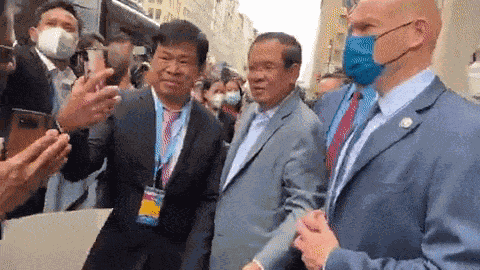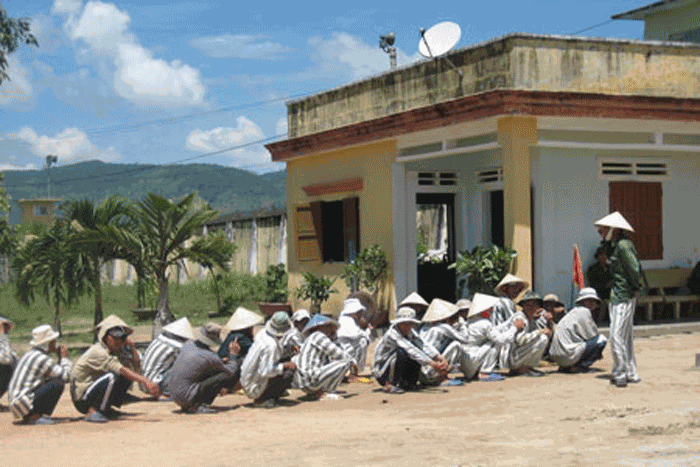
North Korea prioritizes vaccines for border soldiers as COVID wave hits
North Korea’s border patrol soldiers have been among the first to receive shots of the Sinovac vaccine hastily procured from China as the isolated country struggles to contain a wave of COVID-19 infections, North Korean sources said. The Korean Central News Agency reported that more than 1.2 million had fallen ill with an unspecified “fever” believed to be the highly contagious respiratory virus from the end of April until May 15. The announcement came only two days after North Korea first admitted that some of its citizens had COVID-19. Of the people who fell ill, more than 50 later died, the country said. Ryu Yong Chol, an official of the National Emergency Quarantine Command Center, said on Korean Central TV that there were 42 confirmed cases of the virus in Pyongyang and a total of 168 confirmed cases in seven cities and provinces. Leader Kim Jong Un has mobilized military forces to distribute vaccines in the nation of nearly 26 million people, many of whom have weakened immune systems from chronic malnourishment and a lack medical supplies. “The National Emergency Quarantine Command started administering Chinese vaccines to soldiers of the 31st Border Security Bureau brigade,” a military official from North Pyongan province told RFA on Sunday. Though vaccinations also have been given to Border Security Bureau and armistice units stationed in North Pyongan and Chagang provinces, which border China, the vaccination rate remains less than 1%, said the source, who declined to be named for safety reasons. News of COVID-19 infections surfaced after soldiers who had participated in a military parade on April 25 reported high fevers and respiratory symptoms and later tested positive for the disease. As of the beginning of May, the coronavirus has been spreading among members of the Border Security Bureau and soldiers stationed along the entire border region, the source said. Because of this, a delegation of the National Emergency Quarantine Command was urgently dispatched to China to obtain doses of the COVID-19 vaccine, he said. “The delegation of the National Emergency Quarantine Command went to China, contacted the Chinese pharmaceutical company Sinovac with the cooperation of the trade representative in China, and requested support for the COVID-19 vaccine,” the source told RFA. Sinovac provided that vaccines for free, he said, adding that it was likely that Chinese authorities ordered the company to give the doses to North Korea. “The vaccines from China were immediately brought in by sea and the Border Security Bureau patrols and soldiers stationed on the border were vaccinated first,” the source said. “It’s a state secret how many people can be vaccinated with Chinese vaccines, which have just now come in for the first time.” ‘Death toll will increase’ A trader from North Pyongan province told RFA on Sunday that the National Emergency Quarantine Command initially announced that there were 296,180 of “fever” cases nationwide as of May 14. “In fact, the published figures show fever and respiratory symptoms are being reported at rates more than a few times greater than that,” he said. North Korean officials requested COVID-19 vaccines manufactured by Sinovac because they can be stored and transported at normal refrigeration temperatures of 2 to 8 degrees Celsius (36-46 degrees Fahrenheit), the trader said. “If sufficient amount of vaccines are imported in the future, Pyongyang citizens and all military personnel across the country will be vaccinated,” he said. North Korean citizens, however, are going untreated due to lack of access to medicines, including those to treat common cold symptoms, a medical source and a resident of North Pyongan province told RFA. As COVID-19 cases soar, hospitals are quickly becoming overrun, said the medical source, who declined to be named in order to speak freely. “It looks like that the death toll will increase because they will not receive any medicine to alleviate their symptoms,” she said on Sunday. Cold and fever medicines were not available after the Central Committee of the Workers’ Party of Korea, the country’s ruling party, began operating the emergency quarantine system at a maximum level, she said. The medical professional warned that people who are able to get their hand on cold medicines must be careful of fake product that could harm them. “Sometimes, pharmacists and drug dealers sell cold medicines, but most of them are fake,” she told RFA. “In fact, a patient with a high fever from Sunam district in Chongjin [North Hamgyong province] died of side effects after taking a cold medicine manufactured by the Pyongyang pharmaceutical factory.” But a resident in North Pyongan province told RFA that all cold medicines manufactured in neighboring China are gone, as are the counterfeit drugs made by state-owned pharmaceutical companies. “As the number of coronavirus patients rapidly increases these days, fever and cold medicines have become unavailable,” said the resident, who declined to be named for safety reasons. Meanwhile, the cost of herbal medicines unrelated to coronavirus treatment has skyrocketed, with the price of uhwang-cheongsimhwan, a pill made from about 30 herbs used to treat various symptoms such as numb limbs, apoplexy and epilepsy in traditional Korean medicine, more than doubling to 25,000 North Korean won (U.S. $4.16) from 10,000 won (U.S. $1.66). The price of uhwang-angunghwan, another herbal medicine, has risen to 35,000 won from 15,000 won, and the price of sochewan is up to 8,000 won, the source added. Neighborhood monitors have stepped in to try to prevent the number of infections from growing by instructing residents to perform basic hygiene. “The head of the neighborhood watch unit visits each household in the morning and evening, emphasizing that washing hands and gargling with salt water is an effective way to prevent coronavirus,” said the resident of North Pyongan province. Translated by Claire Lee and Leejin J. Chung. Written in English by Roseanne Gerin.




